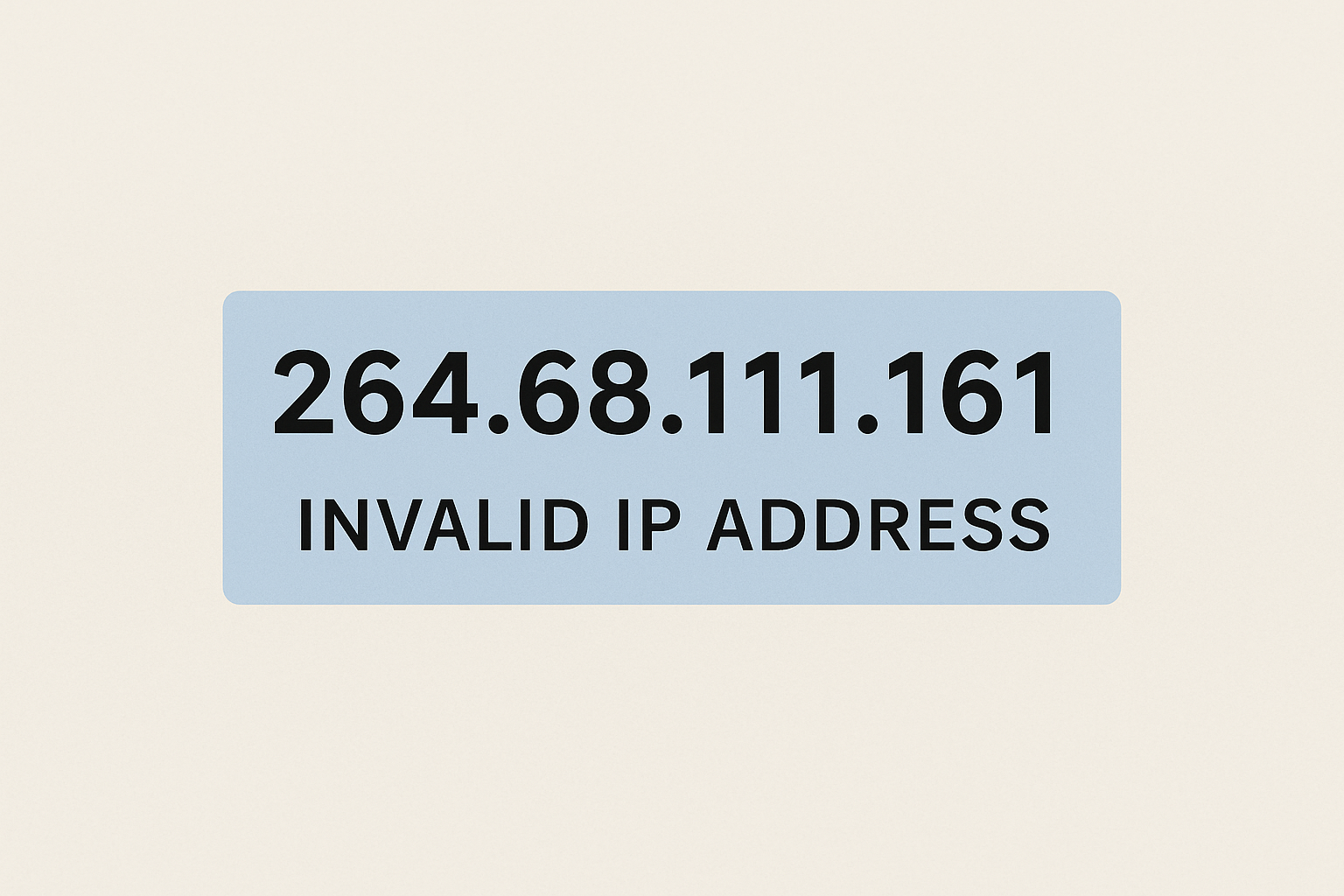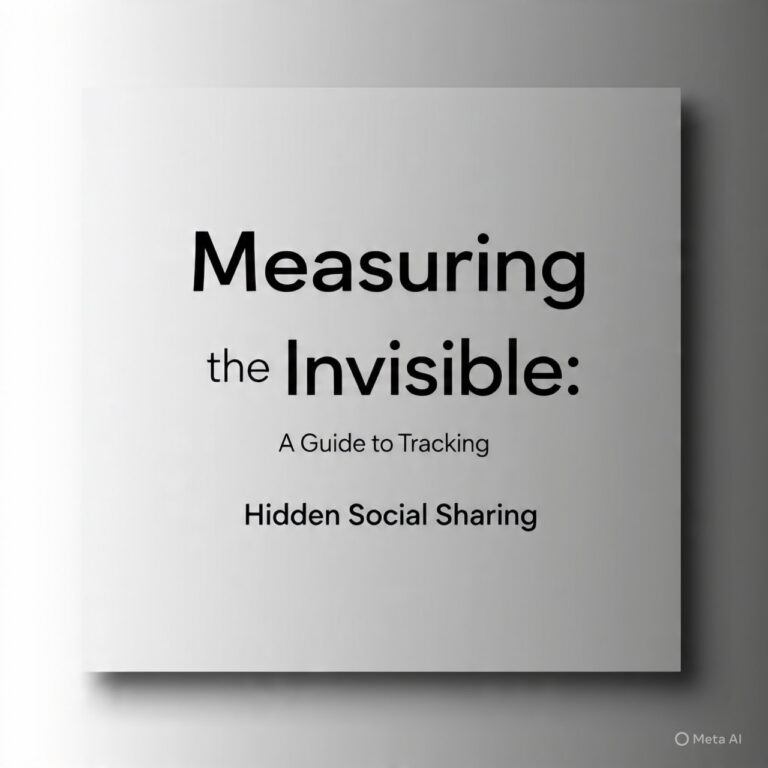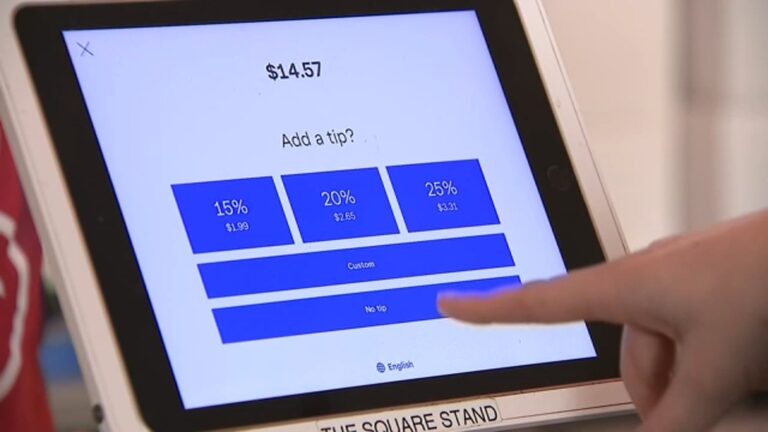264.68.111.161 : A Simple Guide to This Invalid IP Address
Have you seen the number 264.68.111.161 online and wondered what it means? It looks like a normal IP address, but it is not a real or valid IP. In this article, we will explain what it is, why it is not valid, and how people use it.Incestflox
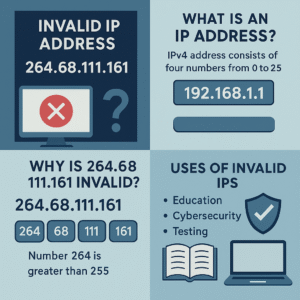
What Is an IP Address?
An IP address is a number given to each device connected to the internet. It helps devices talk to each other. There are two main types:
IPv4: Looks like 192.168.1.1 4 parts, each 0 to 255
IPv6: A newer, longer version used less often in homes
IPv4 addresses:
Have 4 parts called octets
Are separated by dots
Each part must be between 0 and 255
Example:
192.168.0.1 is valid
264.68.111.161 is not valid
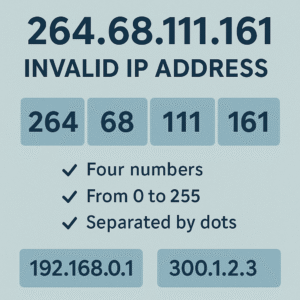
Why 264.68.111.161 Is Not Valid
Let’s break down this number:
| Part Number | Value | Is It Valid? |
|---|---|---|
| 1st | 264 | No |
| 2nd | 68 | Yes |
| 3rd | 111 | Yes |
| 4th | 161 | Yes |
The first number 264 is too big. In IPv4, the highest number allowed is 255. So this makes the whole address invalid.
Where You Might See This Address
Even though it’s not valid, some people and websites still use this IP for certain reasons. Here are the main uses:
1. Teaching and Learning
Used in computer classes to teach IP rules
Used in test questions and examples
2. Cybersecurity
Used in fake IP logs to catch bad users called honeypots
Used to trick bots that scan for weak systems
3. Testing Software
Used by programmers to test how apps handle bad input
Helps to check if systems can catch incorrect data
What Makes an IP Valid or Invalid?
To be a valid IPv4 address, it must:
Have 4 parts numbers
Each number between 0 and 255
Use only numbers and dots
Here’s a simple guide:
| IP Address | Is It Valid? | Why? |
|---|---|---|
| 192.168.0.1 | Yes | All parts between 0 and 255 |
| 10.0.0.256 | No | Last number is too high |
| 264.68.111.161 | No | First number is too high |
| 172.16.0.100 | Yes | All numbers are valid |
| 300.1.2.3 | No | First number is too high |
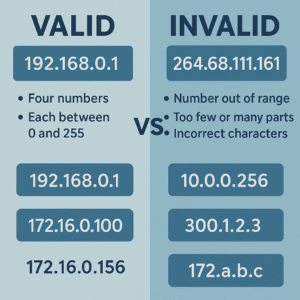
Is 264.68.111.161 Safe or Dangerous?
This IP address is not dangerous by itself. But it may be used in:
Fake emails
Spoofed websites
Hacking tricks
So, it’s always good to check the IP address when you see it in logs, emails, or web links.
Why Are People Searching for It?
Many people search for this IP because:
It shows up in examples or code
It may appear in website logs
It is used in tech or security blog posts
They want to know if it is real or fake
Other Examples of Invalid IP Addresses
Here are more IPs that are not valid:
| IP Address | Problem |
|---|---|
| 999.999.999.999 | All parts too big |
| 256.0.0.1 | First part too big |
| 264.68.111.161 | First part too big |
| 192.168.1.300 | Last part too big |
| abc.123.456.789 | Letters are not allowed |
How to Check If an IP Is Real
You can use free online tools to check IP addresses:
WhatIsMyIPAddress.com
IPVoid.com
MXToolbox.com
Regex101.com
These tools tell you:
If the IP is valid
If it points to a real place
If it is safe
What Happens If You Use 264.68.111.161?
If you type it in your browser, nothing will open. It doesn’t go anywhere. There is no real website or server behind it.
In short:
You cannot visit it
You cannot send data to it
It only exists in examples or logs
Important Tips to Stay Safe
Always check strange IP addresses
Do not click on links with unknown IPs
Block suspicious IPs in your firewall
Use trusted tools to check IP reputation
FAQs
Q1: Is 264.68.111.161 a real IP address?
No. It is not real because the number 264 is too big.
Q2: Can I visit this IP in a browser?
No. It does not lead to any website or server.
Q3: Why do people talk about it?
It’s used in computer examples, security lessons, and fake data.
Q4: Is it dangerous?
Not by itself, but be careful if you see it in emails or spam logs.
Q5: How can I know if an IP is valid?
Check that all four numbers are between 0 and 255.
Conclusion
The number 264.68.111.161 looks like an IP address, but it is not a real one. The reason is simple: 264 is bigger than 255, which breaks the rule for IPv4 addresses.
This fake IP is often used in:
Learning materials
Cybersecurity traps
Software testing
It is not linked to any real device or website. If you see it, don’t worry. But always double-check IPs that look odd they might be part of something unsafe.

